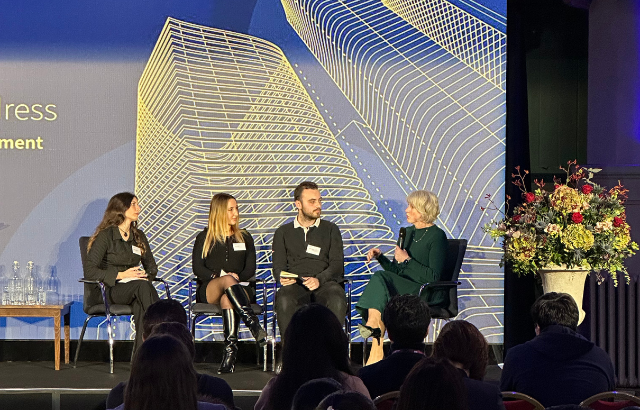Queen Mary’s School of Business and Management recognised as a leader in public good
The Chartered Association of Business Schools has published its latest report which recognises the School of Business and Management at Queen Mary University of London as a leader in delivering public good.

The report, launched on 14 June, identifies the School of Business and Management as being one of a small group of UK business schools that are “purpose led”, delivering public good through innovations in teaching, research, internal operations and external engagement. The report cites in particular Queen Mary’s Social Change Degree Apprenticeship as an example of public good through innovation in teaching.
About Queen Mary’s Social Change degree
Launched in 2019, the Chartered Manager Degree Apprenticeship, specifically designed for the social sector, which includes charities, voluntary organisations and social enterprises, was the first of its kind in the UK.
Based at Queen Mary’s School of Business and Management, the Chartered Manager Degree Apprenticeship (Social Change) is a four-year course with the first intake starting in September 2019. At the time of its launch it was the only programme in the UK specifically focused on social change.
Degree Apprentices split their time between university study and the workplace, and are employed throughout, gaining a full bachelor’s or master’s degree while earning a wage and getting real on-the-job experience in their chosen profession.
Key benefits of the programme over traditional study methods include the promise of zero student debt, up to four year’s work experience, a competitive salary and excellent prospects for a rewarding job in the charity sector on graduation.
Addressing imbalances
The CABS Taskforce that compiled the report note that the School has “long adopted a critical perspective towards social sciences but this engagement, working with purpose-driven bodies focused on social justice in real life situations, has enabled them to engage in social management for change at a level beyond research and academia. Through this degree apprenticeship, the School of Business and Management has applied its core competencies of critical management education to vocational programmes. The for-purpose sector locally is largely white-run in East London with minority communities under-represented in its management. This course provides an opportunity to address this imbalance.”
Professor Mike Noon, Dean of Queen Mary’s School of Business and Management said: “The Degree Apprenticeship is one example that shows the School’s commitment to deliver education and undertake research that makes a material difference to people’s lives. We have always been purpose led and believe that business schools should demonstrate leadership on social responsibility. That’s what our students tell us is important to them, and they will be the next generation of entrepreneurs and business leaders.”
About the Chartered Association of Business Schools (CABS)
CABS are the voice of the UK’s business and management education sector. They support members to maintain world-class standards of teaching and research, and help shape policy and create opportunities through dialogue with business and government.
The UK’s business schools contribute over £13billion to the UK economy annually through their teaching, research and wider impacts. They teach more students than any other subject in UK universities. Business and management graduates go on to lead global businesses or become entrepreneurs, contributing to our dynamic economy. Business school research has an impact across society and helps to turn our capacity for invention into viable businesses.
More information
- Study Business and Management at Queen Mary
- Read more about the Social Change Degree Apprenticeship at Queen Mary
- Find out more about the Chartered Association of Business Schools.
Related items

29 November 2024

12 November 2024
For media information, contact:
